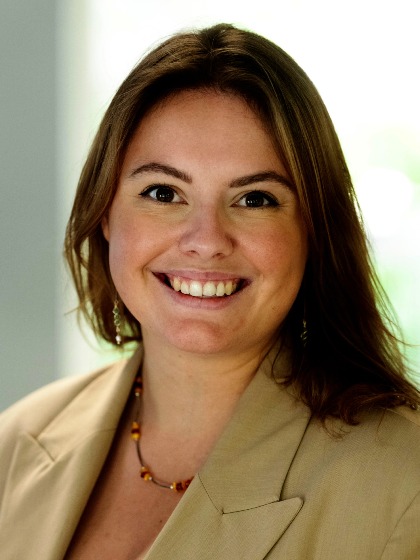D. (Denise) Mensonides

Postdoctoral Research: Migrant generations in the digital society: a multi-level study of socio-cultural factors influencing digital inclusion (DigiMig)
The ability to effectively use digital technologies has become a prerequisite for participating in many spheres of social life. Digital inclusion implies that all citizens have an equal chance to participate in the digital society. This project will study the digital inclusion of migrant generations in the Netherlands and develop a new conceptual framework focusing on socio-cultural factors that affect digital inclusion. The team will analyse users, policies, public initiatives and educational practices – a multi-level approach to identify the overlaps and disconnects between the perspectives and needs of different actors, which will ultimately inform more effective policies for digital inclusion.
From four sub-projects, DigiMig aims to answer the following research question: ‘How do socio-cultural factors influence patterns of digital inclusion in culturally diverse societies?'
Denise Mensonides conducts research on digital inclusion in culturally diverse societies, with a particular focus on government policies and public initiatives in the Netherlands. Her research within DigiMig explores how policymakers position and engage migrant communities in developing policies around digital inclusion. Combining policy analysis with interviews with experts, Denise investigates which factors determine policy public initiatives and provides insights into how they can be shaped to be more inclusive.
PhD Research: Informed Citizenship for All - Digital Literacy as a Prerequisite for an Inclusive Society
Digital Literacy within the family context
Recent research shows that up to five million Dutch adults are unable to perform basic online tasks, assess online information, or deal with privacy. As many daily activities are moving online and citizens are increasingly expected to be able to navigate digital platforms, interfaces and devices, this raises concerns about the potential exclusion of large groups of citizens in the digital society. Moreover, two-thirds of young people between 13 and 18 lack essential digital literacy skills. This indicates that they have not developed these skills in the years before (8-12 years), when digital literacy skills are acquired and media habits developed that sustain for the rest of their lives. Both teachers and parents are concerned about the level of digital skills primary school pupils have.
To better understand how children from different socio-economic backgrounds develop digital literacy, this PhD project considers if and how the causes that foster or prohibit the development of digital literacy differ between children with a more or less vulnerable socio- economic background. It asks under what circumstances the development of digital media literacy is supported within households, and what these differences in how families deal with media within the household mean for children’s media practices in- and outside the home.
By observing children at four out-of-school daycares and primary schools located in different neighborhoods in Groningen, and conducting interviews with children, parents, teachers and pedagogical staff, we build knowledge on how children develop the skills that will help them flourish and participate in contemporary society. Our insights are shared with partners in the field, such as childcares, schools and libraries. This will provide guidance for developing policy to further promote digital literacy. Ultimately our research aims to provide tools and strategies to tackle digital inequalities and ensure that every child develops the necessary skills to participate in an increasingly digitized society.
| Last modified: | 08 February 2025 1.53 p.m. |
